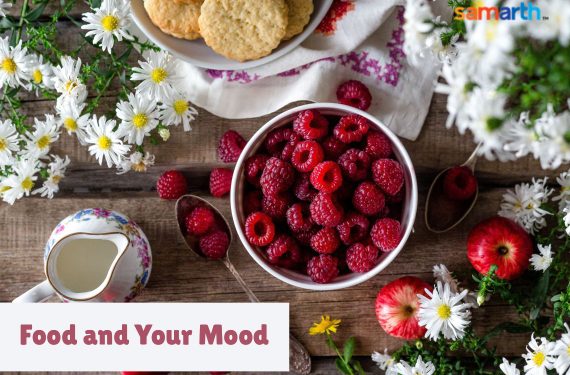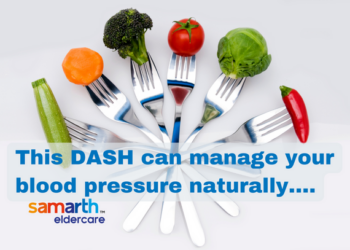Watch what you eat, for you are what you eat, or so say the expert articles that seem to go around. Is it true that our moods may be dependent on what we eat? Can our diet put us in a good or bad mood? Surprisingly, the answer to this as per scientific evidence is YES.
Our moods are determined by the Serotonin levels in the brain, and therefore, if the food that we eat does indeed affect our moods, it must mean that scientifically a connection to this must exist. It is said that while scientists are still conducting further research on this subject, the initial findings indicate that the food we eat can put us in a good mood, put us into a depression, or help us get out of it. Here are some interesting inputs based on the research conducted on this.
The bottom line

Join Now >
The concept of what you eat can affect your mood, is based on the fact that the food that we eat, can bring about changes in our brain structure. These changes may be chemical and physiological and thus can lead to behavioral changes in us. So, it means that it is possible for us to change what we eat, or dietary patterns, and remain in good moods. Also, we should be able to identify and avoid food that put us in bad moods.
The carb link
Typically, people talk about going low carb to remain healthy. But, perhaps, when it comes to moods and the associated research, you may be surprised to know, the suggestions indicate otherwise. The mood-regulating chemical called Serotonin, a neurotransmitter is produced naturally in the brain, with the help of tryptophan, nonessential amino acid, with the help of some B Vitamins. If more tryptophan enters the brain, more Serotonin is produced and your mood will remain good.
Incredibly, to boost tryptophan levels, you need to more carbohydrates and researchers found that people on a low carb diet, may find themselves fatigued or losing out on the will to exercise. There needs to be a balance found in eating the carbs by switching to smart carbs like fruits and vegetables, whole grains, and legumes. Food like fish and Vitamin D also helps increase the Serotonin levels in the brain.
Omega 3 fatty acids
Omega 3 fatty acids have always been said to provide a lot of physiological benefits with eye, heart and brain health. It is so since the Omega 3 fatty acids are said to affect the neurotransmitters in the brain. So eating seafood, flaxseeds, and walnuts, etc. that are rich in Omega 3 fatty acids can help improve brain health, and also in turn your moods. These foods can help prevent depression is the initial indication through studies.
Mediterranean Diet
It is true that the Mediterranean diet has been found to be the best diet with respect to maintaining one’s health. That is nothing surprising and is purely based on the ‘balanced diet’ factor along with a healthy eating pattern. This diet contains fruits, veggies, nuts, fish, cereals, and legumes aplenty, and thus, helps prevent depression. Scientists have found a link between folate and depression, and the Mediterranean diet does include a lot of that.
Mostly, having a balanced breakfast is also said to be a good eating pattern that can put a person in a good mood for the day. This could simply be due to the fact that not having a healthy breakfast can cause fatigue and irritability; and having a good breakfast can help one stay calm, think better and also have the necessary energy to tackle the day.
Selenium
Especially in seniors, it has been found that low Selenium consumption can affect the moods, and put people into a mild depression. Hence, it may be good to include food rich in Selenium, like seafood, nuts, whole grains, lean meat, beans and legumes, and low-fat dairy foods. Having more Selenium can also affect a person adversely and care should be taken to keep it to the daily intake reference of 55 micrograms a day. Eating it naturally through the foods can assure that rather than having it as supplements.
To put simply, if one pays some attention to what one is eating, and when, a lot can be changed about being a good mood. Also, it is good to avoid too much caffeine, as that can affect our moods too.









